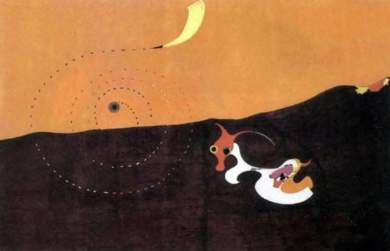We do not inherit the earth from our ancestors; we borrow it from our children.
(No heredamos la tierra de nuestros antepasados; la tomamos prestada de nuestros hijos.)

The year ahead is like a blank page waiting to be written. New beginnings are always full of new promise. Just now, I came across the quote above and it has set the tone of my thoughts for the week. I repeated to myself: I do not inherit the earth from my ancestors, I am borrowing it from our children.
It is believed that the previous quotation is part of a longer one that comes from Chief Seattle, a leader of the Native American Suquamish Tribe, who warned the white man: Teach your children what we have taught ours, that the earth is our mother. Whatever befalls the earth befalls the children of the earth. The earth does not belong to man; man belongs to the earth. Humankind did not weave the web of life; we are merely a strand in it. We do not inherit the earth from our ancestors; we borrow it from our children.
This poignant thought focuses on responsibility (responsabilidad in Spanish) rather than on ownership. I believe, we are all responsible for what is given to us by nature, it does not belong to us, nor even to our descendants, as they too will have the same responsibility to deliver in the future.

The term “responsibility” has its origin in the word responsible (responsable in Spanish). It comes from the latin “respōnsum”, “responderē”, which means to answer to. As the English term “to respond” comes from the same root meaning to promise in return and to pledge on.
Following the discovery of a hole in the ozone layer in 1980s, an international agreement took place to resolve the issue. As a result, the international community reduced its dependency on the destructive gases that depleted the ozone layer and now the hole appears to be shrinking. Although this was not a holistic “answer” to the problems we create with our environment, it shows a change of consciousness towards a new way of caring for nature; understanding that we are a part of nature and not a separate entity.
This proactive action reminded me of the plea made by Bruce Witzel in Practical Change, as to what is urgently needed being a change of consciousness about how we relate to ourselves and to our habitat; which I discussed in my previous article Echo, Economy and Ecology.

Another milestone, the recent conference in Paris, the COP21 [1], reached the most ambitious international agreement ever proposed on climate change. Amongst other goals and measures it was agreed to pursue to keep the global temperature increase “well below” 2C (3.6F) above the level they were in the 1850-1899 period.
I, and I hope you too, will acknowledge that we are borrowing the earth from our children. The year ahead is full of new promise and I urge you to engage proactively with the changes needed to harmonize our relationship with the natural world and the nested ecosystems within it wherever and whenever the opportunity arises.
1 January 2016
— —
Footnote
[1] The 21st Conference of the Parties to the United Nations Framework Convention on Climate Change took place from 30 November to 11 December 2015, in Paris, France.
Echo, Economy and Ecology
(Eco, economía y ecología)
A Greek legend tells us that on mount Kithairon lived Echo, (Eco in Spanish), a very well spoken nymph. The most beautiful words came out of her mouth in the most pleasant manner. Zeus, the ruler of the ancient Olympian Greek pantheon, the God of the sky and thunder, used to be very flirtatious with the nymphs. Hera, Zeus’ wife, the Goddess of women, fertility and marriage was jealous of Zeus’ many affairs and was out to catch his infidelities.
Depending on the version of the narrative, either Hera caught Zeus wooing Echo; or Echo prevented Hera from catching Zeus flirting with the other Nymphs by distracting Hera with her famed eloquence. Either way, Hera’s jealousy lead her to curse Echo, taking away her eloquent speech; condemning Echo to repeat only the last word said by other people.
For many years, I did not realise that the repetitive echo I had heard in hilly areas or caves was named after such an ingenious narrative. ‘Eco’, the Spanish word and the English Echo are both borrowed from the Hellenistic language, via the Romans. Such was the prestige that the Greek language had amongst Latin speakers.
The linguistic links between the Greek and European languages, particularly those originating from the Latin, as with Spanish, are very narrow. Hellenisms, so frequent in the Spanish language, constitute a significant contribution from the Greek.
Many old and newly created scientific and technical words of the Spanish language come from Greek. For example: geografía, geography; fotografía, photography; and biodiversidad, biodiversity. A further discussion on the contribution the Greek language has made to Spanish will be given in a follow up article. For now lets look at the words: ecología and economía.
‘Ecología’,ecology and ‘economía’, economy are two other words with a Greek linguistic origin and although their root sounds like ‘eco’, they do not share the same etymology.
‘Economía’, – economy, means the administration of a household. It comes from the Greek ‘oikos’ [1], which translates as home or dwelling, and ‘nomos’ [2] meaning law.
Similarly, ‘ecología’ is the discipline that deals with the relation of living beings and their dwelling or habitat. It comes from the Greek ‘oikos’ [1], meaning home or dwelling and ‘logy’ [3] meaning study or treaty.
Bruce Witzel states in his article Practical Change [4]: “Modern civilization has largely fallen into a dualism that seems to put ecology and economy as two opposing forces”, when “in reality, the two, are interrelated”.
The reflections of Bruce Witzel about ‘practical change’ have reminded me about the importance to rethink the relationship we humans have with nature. In 2008, a Latin American country, Ecuador codified the Rights of Nature, becoming the first country in the world to do so. This initiative, pushed by the native population of Ecuador, became a milestone, an example to follow. One of the many steps needed to push forward a change of consciousness about the way we envisage our relationship as part of a natural environment.
Native peoples have an unrivaled knowledge of their local flora and fauna, and they play an essential role in the conservation of biodiversity. According to scientific studies, indigenous lands might be the most important barrier to the continuing Amazon deforestation. The Ecuadorian Constitution has recognised the rights of ecosystems, to exist and flourish.
This sounded very strange to many. How is it that nature can have rights akin to our human rights?
It should not be much of a surprise when we consider the fact that private corporations in the United States have human rights. In the book: “Entre el quiebre y la realidad” [5], Eduardo Galeano reminds us that over one hundred years ago, “in 1886, the US Supreme Court … extended human rights to private corporations. The law recognized to them the same rights as to peoples, right to life, freedom of expression, privacy and to everything else, as if companies could breathe.” He remarks “This hasn’t caught the attention of anybody”.[6]
I would like to share with you a YouTube link of a video: La naturaleza no es muda, Nature is not Silent, where Eduardo Galeano presents on television fragments of his book Los Hijos de los días, The Sons of the Days. Only available in Spanish: click here. He concludes his presentation by affirming: “ … if nature were a bank, they would have already bailed it out [7]”.
ln Spanish we have an expression: ‘hacerse eco de’, which is similar as when in English we say ‘somebody echo’s something’ contributing to the spread of ideas, news or knowledge. I want to echo back to the beginning of this article and to refer to the power of the echo. Let us echo the global need for a change of consciousness towards our economy and our relationship with flora, fauna, biodiversity and ecosystems.
And the days walked.
And they made us.
And so we were born,
The children of the day,
The inquirers,
Searchers of life.
(Genesis according to the Mayas) [8]
June 2015
— —
Footnotes:
[1] οἶκος [oikos]
[2] νόμος [nomos]
[3] λογία, [logy]
[4] Practical change: “Change that is required is a change of consciousness.” by Bruce Witzel.
[5] Entre el quiebre y la relidad, Constitución 2008. Alberto Acosta et al. 1era. edición: Ediciones Abya–Yala – Printed in Quito – Ecuador, 2008 – ISBN: 978-9978-22-765-7
[6] Free translation from Entre el quiebre y la realidad. En 1886, la Suprema Corte de Estados Unidos … extendió los derechos humanos a las corporaciones privadas. La ley les reconoció los mismos derechos que a las personas, derecho a la vida, a la libre expresión, a la privacidad y a todo lo demás, como si las empresas respiraran … a nadie le llama la atención.
[7] Free translation: “… si la naturaleza fuera un banco, ya la hubieran salvado”.
[8] Free translation from the cover of Los hijos de los días, The sons of the Days: Y los días se echaron a caminar. / Y nos hicieron a nosotros. / Y así fuimos nacidos nosotros, / Los hijos de los días, / Los averiguadores, / Los buscadores de la vida. / (El Génesis según los Mayas)





You must be logged in to post a comment.